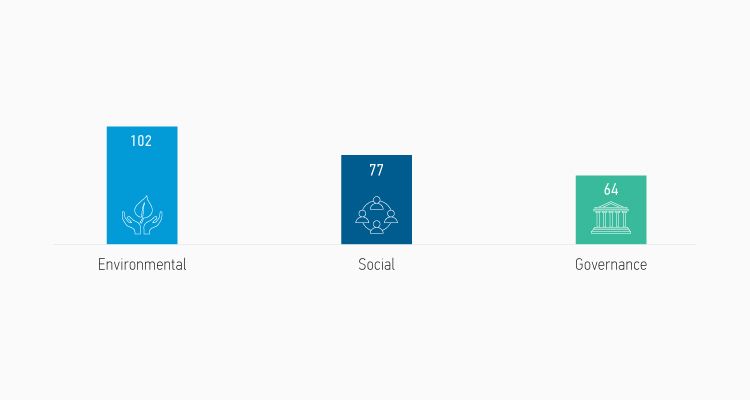
Morgan Stanley IM: Engage Spring 2022
The latest edition of Engage, the International Equity Team’s semi-annual update on their ESG engagement activity.
22.06.2022 | 08:21 Uhr
Here you can find the complete article
We have engaged directly with companies on issues material to the sustainability of returns for over 20 years. As active managers running concentrated portfolios and with a long-term investment horizon, we believe we are well positioned to engage with management on material ESG topics and influence companies towards better practices.
We seek to deliver better outcomes for our clients through producing attractive returns over the long term. To do this, we must invest with a conscious eye on whether companies can deliver better outcomes not just today, but 5, 10, and even 20 years from now. We back companies that have the characteristics needed to lead in the long run, like recurring revenue, pricing power and strong management, and importantly also invest to manage and improve their ESG impact. Direct, portfolio manager-led engagement is, in our view, vital to understanding whether companies and management can deliver in these areas.
We prioritise our engagement and voting efforts based on what we believe are the most material long-term issues facing our companies. In the second half of 2021, we continued to engage with company management on a range of ESG themes, including decarbonisation, biodiversity, the circular economy, executive pay, and supply chain management, amongst others.1 Throughout 2021, 51% of our engagements with company management included discussions on ESG-related topics (143 of 280 meetings).
Our holistic approach means we typically engage with companies on more than one topic in any given meeting. Environmental topics featured in 71% of our ESG engagements, while social and governance topics presented in 54% and 45% of engagements respectively.
Display 1
Number of engagement where we discussed ESG-related topics, FY 2021 2, 3

Risk Considerations
There is no assurance that a portfolio will achieve its investment objective. Portfolios are subject to market risk, which is the possibility that the market value of securities owned by the portfolio will decline. Market values can change daily due to economic and other events (e.g. natural disasters, health crises, terrorism, conflicts and social unrest) that affect markets, countries, companies or governments. It is difficult to predict the timing, duration, and potential adverse effects (e.g. portfolio liquidity) of events. Accordingly, you can lose money investing in this strategy. Please be aware that this strategy may be subject to certain additional risks. Changes in the worldwide economy, consumer spending, competition, demographics and consumer preferences, government regulation and economic conditions may adversely affect global franchise companies and may negatively impact the strategy to a greater extent than if the strategy’s assets were invested in a wider variety of companies. In general, equity securities’ values also fluctuate in response to activities specific to a company. Investments in foreign markets entail special risks such as currency, political, economic, and market risks. Stocks of small- and mid-capitalisation companies carry special risks, such as limited product lines, markets and financial resources, and greater market volatility than securities of larger, more established companies. The risks of investing in emerging market countries are greater than risks associated with investments in foreign developed markets. Derivative instruments may disproportionately increase losses and have a significant impact on performance. They also may be subject to counterparty, liquidity, valuation, correlation and market risks. Illiquid securities may be more difficult to sell and value than publicly traded securities (liquidity risk). Non-diversified portfolios often invest in a more limited number of issuers. As such, changes in the financial condition or market value of a single issuer may cause greater volatility. ESG strategies that incorporate impact investing and/or Environmental, Social and Governance (ESG) factors could result in relative investment performance deviating from other strategies or broad market benchmarks, depending on whether such sectors or investments are in or out of favor in the market. As a result, there is no assurance ESG strategies could result in more favorable investment performance.





Diesen Beitrag teilen: